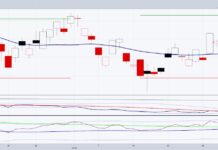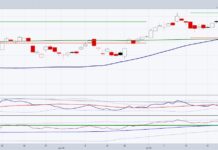“All is for the best in the best of all possible worlds” – Voltaire (Candide/The Optimist)
Consider the media headlines and stories published before and after the presidential election regarding Donald Trump.
Before the election:
- “The conventional wisdom is that, right off the bat, the stock market would fall precipitously. Simon Johnson, the Massachusetts Institute of Technology economist, posited that Mr. Trump’s presidency would “likely cause the stock market to crash and plunge the world into recession.” He predicted that Mr. Trump’s “anti-trade policies would cause a sharp slowdown, much like the British are experiencing” after their vote to exit the European Union.” – The New York Times – “What Happens to the Markets if Donald Trump Wins?” by Andrew Ross Sorkin
- “The stock market doesn’t like the idea of a Trump Presidency”- PBS Newshour
- “Economists: A Trump win would tank the market” – Politico
- “Stock Markets will freak out if Trump wins, but you probably shouldn’t”- Boston Globe
After The Election:
- Wall Street welcomes Trump with a bang” –CNN Money
- Stock Market Slingshots Higher After Trump Victory Sparked Overnight Plunge” Forbes
- Dow Surges to Fresh All-Time High on Trump-Fueled Momentum” –Fox Business
Following Donald Trump’s surprise victory and the violent market reactions, many investors are left scratching their heads. As shown above, the consensus narrative warned that a Trump victory would spell doom for the markets. Days later, the narrative flipped and Trump’s economic policies, all of which were known prior to the election, are deemed beneficial for share prices.
In this article we evaluate the narratives we see day-to-day and how they not only tell a story, true or false, but provide comfort and, importantly, a sense of control. We then explore the current market narrative calling Donald Trump’s victory bullish for share prices. We hope to provide cognizance of the influence of narratives and to offer a basis to help investors judge whether the markets’ reaction is justified.
The Narrative

A narrative is a story or a line of reasoning that helps explain an event. Sometimes a narrative is factual, sometimes it is fabricated and quite often it lies somewhere in between. A great example can be found when your favorite newspaper proclaims that the market was up or down yesterday due to a specific event or piece of data. Trying to encapsulate the hundreds of millions of investment decisions into one story line is not only ridiculous, but grossly misleading. Human nature demands narratives, as they give us a sense of control and the comfort of understanding, valid or not, why something has occurred.
Global warming provides a good example of a popular narrative. The narrative states that humans are the overwhelming cause for the increase in global temperatures and the problems it causes. There is no doubt human actions have a big impact on the earth’s climate, but there are millions of other variables, many of which are not understood at all. By assigning blame on humans, rightly or wrongly, we are provided a sense of control over the problem. Humans find it comforting to believe that if we caused the problem then we can certainly control the problem and possibly even reverse it.
Over the last few years, investors have relied heavily on narratives to help justify extended valuations. A great example is the “bad news is good news” mantra. The stock market has seen more than its fair share of days when weak economic data was the impetus to buy stocks. This storyline causes investors to ignore the fact that weaker economic growth leads to weaker earnings and inevitably declining prices. Instead, investors have taken comfort in a belief that the Federal Reserve will counteract weak economic data with monetary stimulus and thus influence prices higher regardless of economic fundamentals. The narrative provides investors comfort and rationalization at a time when valuations are extreme and economic growth is stagnating. The harm of this narrative, and any narrative for that matter, occurs if it is proven wrong.
Panic Narrative
The market volatility on the presidential election night was stunning. Prior to the election, many concerned investors had shorted equities, hedged positions and/or moved to greater cash positions. As a Trump victory looked more and more viable, the markets plunged and at first proved the concerned investors correct. Early Wednesday morning, however, the markets reversed sharply. At that point, it is likely that a perfect technical storm formed. With S&P 500 equity futures limit down 5%, computer algorithms, trained to “buy the dip” were staring at a dip of monstrous proportions. The exchange limits that halted trading provided a floor to the market downfall. Once the downside was capped some investors began covering shorts and even outright buying. The market started rising and likely triggered signals for the algorithms to buy. Keep in mind, the blueprint for this reaction was recently affirmed by the BREXIT vote.
The race was on. Not only were the computers buying, but investors, well trained to buy the dip, jumped in as well. Adding fuel to the fire were those investors that were short the market or hedged as a defense against the low probability of a Trump victory. By 9:30 am, the S&P 500 was down 8 points, having gained 92 points from the nights lows. It closed the day up 24 points and the week 76 points or 3.6% higher. Shortly after the media declared Trump victorious in Pennsylvania and Wisconsin, a panic-born narrative was created.
The new narrative goes as follows: Donald Trump will cut taxes, increase infrastructure spending, reduce regulation, allow for the repatriation of foreign profits, and be a proponent of a host of other business friendly ideas. All of these proposals were public weeks before the election, when the market discounted equity prices on concerns that Trump could win and such policies would be enacted.
Out of desperation for answers, this new business friendly narrative was born. Investors, desperately seeking an explanation for the sharp rally, were placated. While such proposed actions taken at face value may benefit stock prices, it is incumbent upon investors to understand the efficacy and ramifications of the proposals as well as the political and economic environment.
continue reading on the next page…








